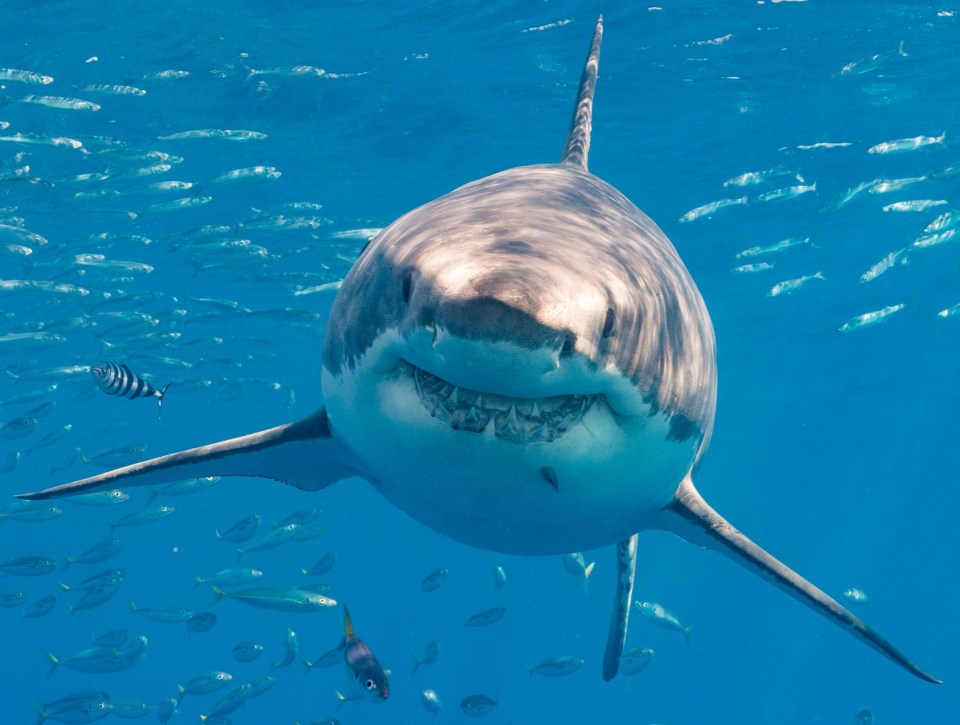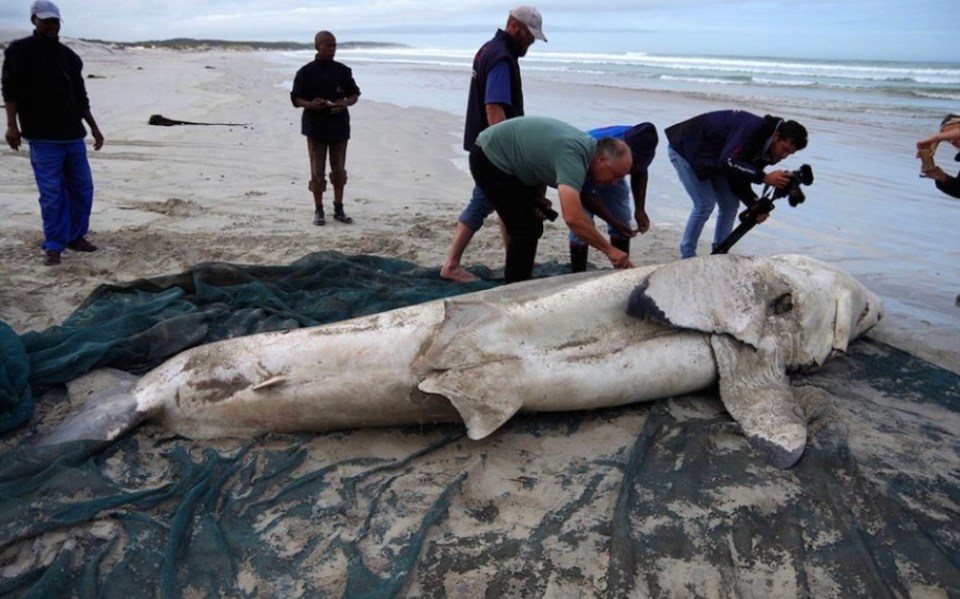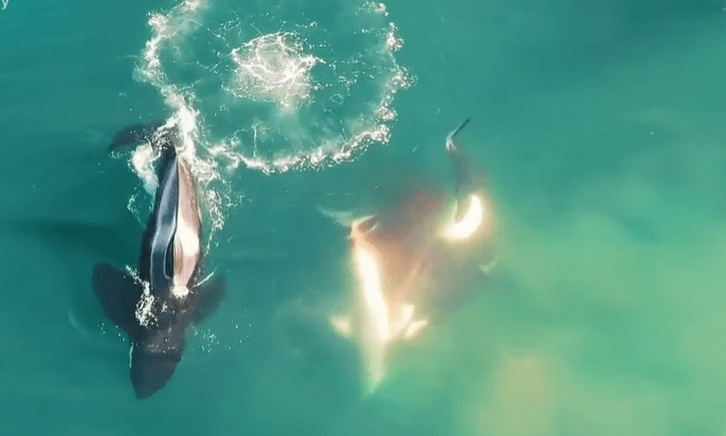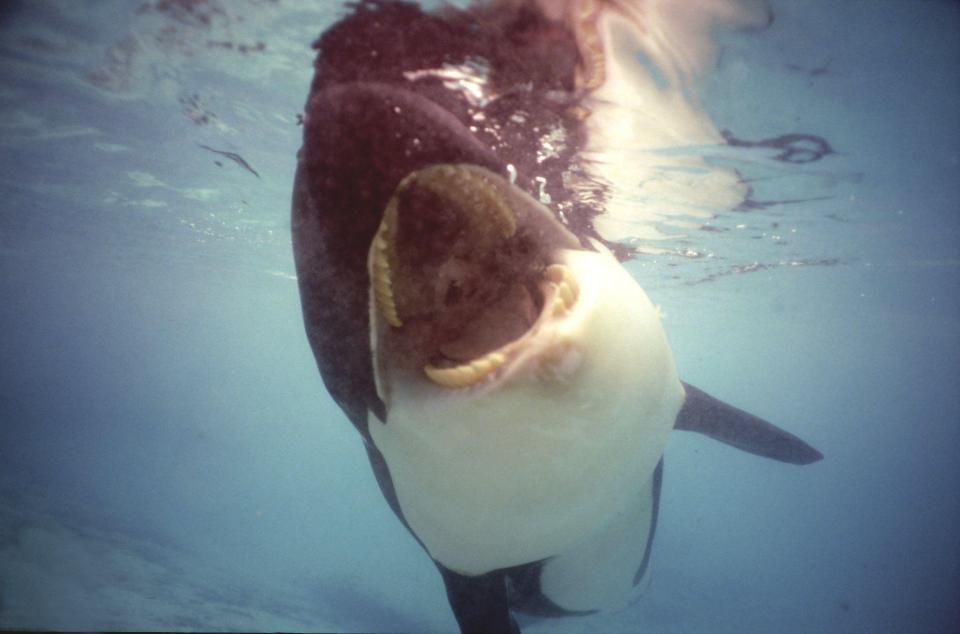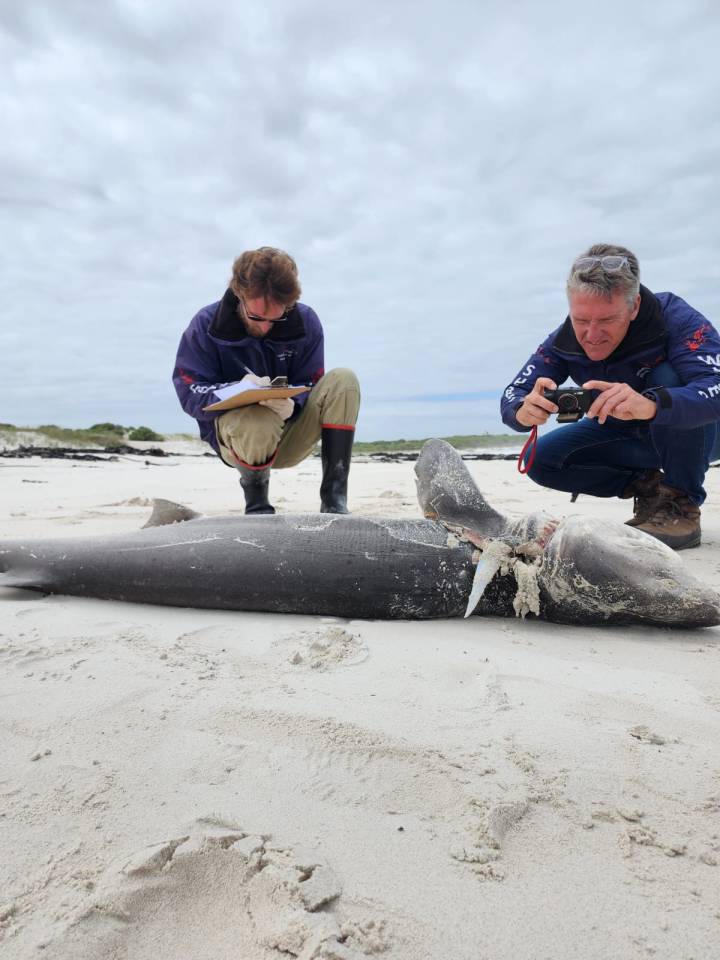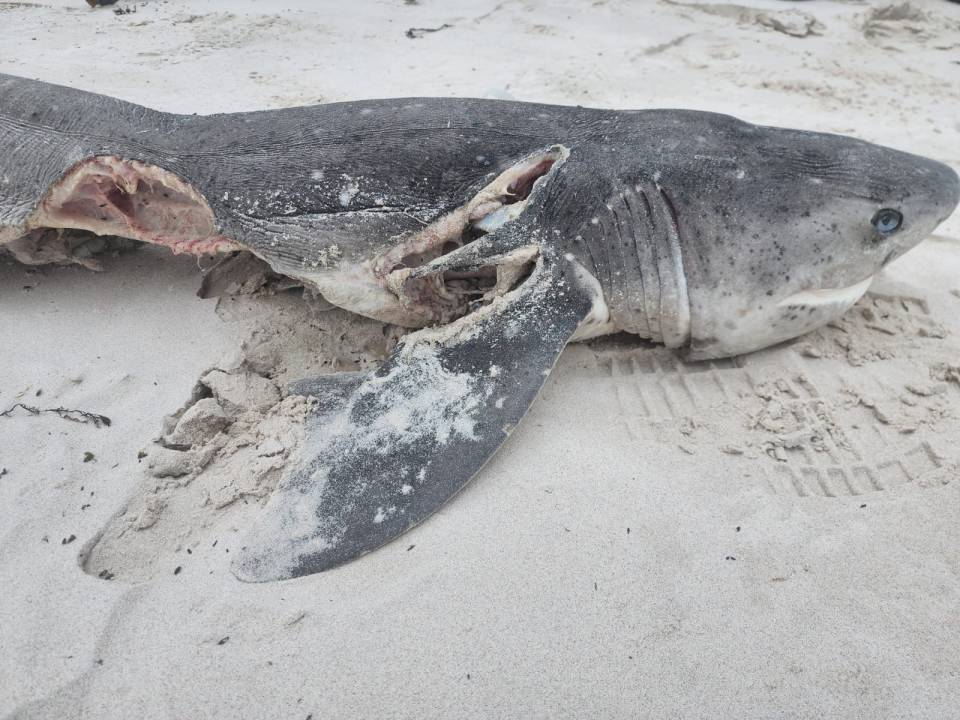SEVERAL great white sharks have been found dead with their livers brutally ripped out in new horror attacks.
The vicious acts have led to great whites avoiding the South African coast at all costs.
Back in 2017, five great white sharks eerily washed up along the coastline with gaping teeth marks and bleeding wounds around their livers.
The killers are still unknown but scientists suspect it could be two beasts that roam the bay.
Experts claim the predators have started to enjoy the taste of shark meat, especially their fatty livers and could now be top of the food chain.
So far in 2023 not a single great white shark has been seen in False Bay - famous for the iconic view of Seal Island - despite there being 50 recorded sightings last year.
read more on ocean attacks
The discovery was made after researchers noticed trackers they'd put on the sharks didn't record a single one going near the bustling tourist spot.
The formidable shark killers are said to be a pair of orcas - Port and Starboard.
Named for their dorsal fins that hang to the left and to the right, the pair are thought to have developed a taste for shark and now patrol the bay asserting their dominance.
Vital organs such as the liver are rich in oil and fats and a valuable energy source for the huge marine creatures.
Most read in Tech
Marine biologist Alison Towner of the Dyer Island Conservation Trust said: “A study in California showed that great white sharks were being attacked by pods of killer whales and driven away from feeding grounds.
"This is a complex issue which is something we are trying to better understand but we do know that killer whales have regional impact on great whites as seen in South Africa, California and Australia.
"Although the presence of killer whales will obviously have an effect on great whites, there are many other factors that come into play."
False Bay is the biggest bay in South Africa and located just three miles from Seal Island - home to 60,000 seals.
In the past tourists would flock to the bay to try and catch a great white in its natural habitat hunting for food.
Holidaymakers could also swim with the great beasts inside cages but will now have to travel to Gansbaai as they're long waited return continues.
Marian Nieuwoudt, a Cape Town environment official, is concerned by the sudden disappearance and what it could mean for the other marine life.
She said: "Great white sharks are top apex predators and we do not know how their absence from False Bay would impact the ecosystem.
"We remain hopeful that the great whites will return to False Bay and will announce our first sighting when this happens."
In October, scientists revealed killer whales had started to act in a never-before-seen way.
They had started to engage in new aggressive activities such as the brutal killings of other marine life and made scientists believe they may be getting smarter as a species.
Experts have been trying to figure out why the whales would pick up new worrying behaviours so suddenly.
It's been suggested whales are able to learn new things quickly due to their complex brains.
Interactions with humans could also be a determining factor as to why they've been videoed attacking, bullying and brutally killing whatever they like.
South Africa is home to a large number of killer whales, especially in and around Struisbaai, a notorious orca hunting ground.
Read More on The Sun
Footage from California has also shown the highly intelligent animals carrying back their kills through the water.
One shows a mammoth orca trapping a tiger shark in its jaws before passing round the carcass for its two young calves to feed on.


